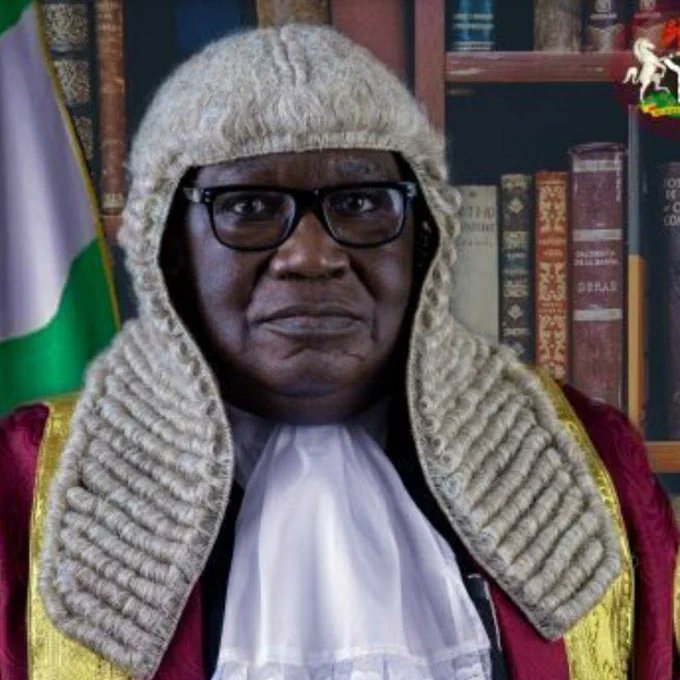In a flurry of tweets, Nigerians express their concerns over the delay in the ruling by the Presidential Election Petition Tribunal (PEPT) and raise questions about the credibility of Justice Harunna Tsammani, one of the judges on the panel. The hashtag #AllEyesOnJusticeTsammani has gained momentum on Twitter as citizens demand transparency and accountability from the judiciary NEGROIDHAVEN can report authoritatively.
The PEPT has become the center of attention as Nigerians await the final judgment on election litigations. The delay in fixing a date for the ruling has triggered suspicions and speculations among the public, with some expressing apprehension over the possible implications for democracy and the constitution.
One of the trending tweets quoted a statement allegedly made by Justice Harunna Tsammani, in which he compared forgiving Bola Tinubu’s past deeds to Jesus’ forgiveness and urged leniency. This statement has raised eyebrows and fueled debates about the integrity and impartiality of the judiciary. Critics argue that such a statement undermines the principles of justice and raises questions about the potential bias of the judge.
‘Since Jesus can forgive and forget why can’t you forgive Tinubu’s drug crime…’, Justice Harunna Tsamani is alleged to have told one of the counsels representing PDP’s presidential candidate, Atiku Abubakar.
The trending hashtag also raises concerns about the lack of transparency and accountability within the Nigerian judiciary. Some citizens believe that if Justice Tsammani made the alleged statement, it could indicate a prejudiced view, compromising the fairness of the judgment. Many tweets express doubts about the judge’s affiliations and ability to make unbiased decisions.
Another tweet suggests that Justice Tsammani refused to allow the case to be televised and ordered that phones should not be allowed in the courtroom. These actions have further fueled suspicions about the judge’s intentions and have sparked discussions on the need for transparency in the proceedings.
Several tweets question whether the delay in the ruling and the judge’s alleged affiliations are influenced by political interests. Some express concerns that the judiciary may not be immune to corruption and external pressures, potentially compromising the sanctity of the judgment.
However, not all tweets are critical of the judiciary. Some urge the public to have faith in the system and trust that justice will be served. They remind fellow citizens that judges are humans and capable of making unbiased decisions based on the evidence presented.
As the #AllEyesOnJusticeTsammani hashtag continues to trend, the judiciary faces increased scrutiny, with citizens demanding accountability and transparency. The case at the PEPT holds significant implications for Nigeria’s democracy, and citizens are closely monitoring the proceedings to ensure a fair and just outcome.









